There's a more important question than whether Fournette sits next year

What should Leonard Fournette do?
Halfway through the 2015 schedule, one of the most persistent questions in college football concerns next season. Specifically: Will — or should — Leonard Fournette sit out his junior season to preserve his already sky-high draft stock?
Fournette still has plenty of work ahead of him, of course. With six games remaining, a 2,000-yard season is possible, as is a chance to join a select group of sophomore Heisman Trophy winners. Oh, and his Tigers are 5–0 — in the mix for the SEC championship and a spot in the College Football Playoff.
Fournette already has invoked comparisons to legendary southern running backs of yore , players that can be identified by a single name: Emmitt, Bo and Herschel. He’s managed to marry an impressive first step and uncanny acceleration with a punishing running style that’s left many observers questioning how this fully fledged mega-athlete can possibly be just 20 years old. And therein lies the rub: Anyone with functioning eyes can see the one year standing between Fournette and the NFL is unnecessary.
So what does he do?
To hear it from Tigers coach Les Miles, Fournette is likely to remain on the field for his junior season. “I can’t imagine that Leonard would be sitting anywhere inactive for a fall,” Miles said during a weekly radio interview earlier this month.
• MORE: Fournette evoking comparisons to the game's greats
Still, the notion of a sidelined year persists, in part because the sports punditsphere has seldom lacked for imagination. At Pro Football Talk, Mike Florio offered one of the strongest endorsements for Fournette taking a junior year sabbatical, noting that, “by playing for LSU in 2016, Fournette risks becoming the next Marcus Lattimore.”
Others, unsurprisingly, have come to challenge this suggestion, with accomplished former pro Marshall Faulk arguing that even a back as talented as Fournette would suffer from missing game action for a full year. FOX Sports’s Stewart Mandel echoed Faulk’s assessment, adding that, “NFL teams might question his dedication/passion.” But if that’s a problem, FOX’s Clay Travis offered his own “ridiculous hypothesis” on how Fournette could avoid the selfish tag, noting the back could deliberately leak video of himself signing autographs for cash, thereby violating NCAA rules and making himself ineligible for the 2016 season. A little absurd? Undoubtedly. But never let it be said that sports debate doesn’t offer some creative ideas.
So what, then, is the solution? How can such a talented, primetime-ready back navigate both the NFL’s age restrictions and the NCAA’s byzantine restrictions on compensation?
What should Leonard Fournette do?
The fact we are asking him that question may be the greatest shame of all.
*****
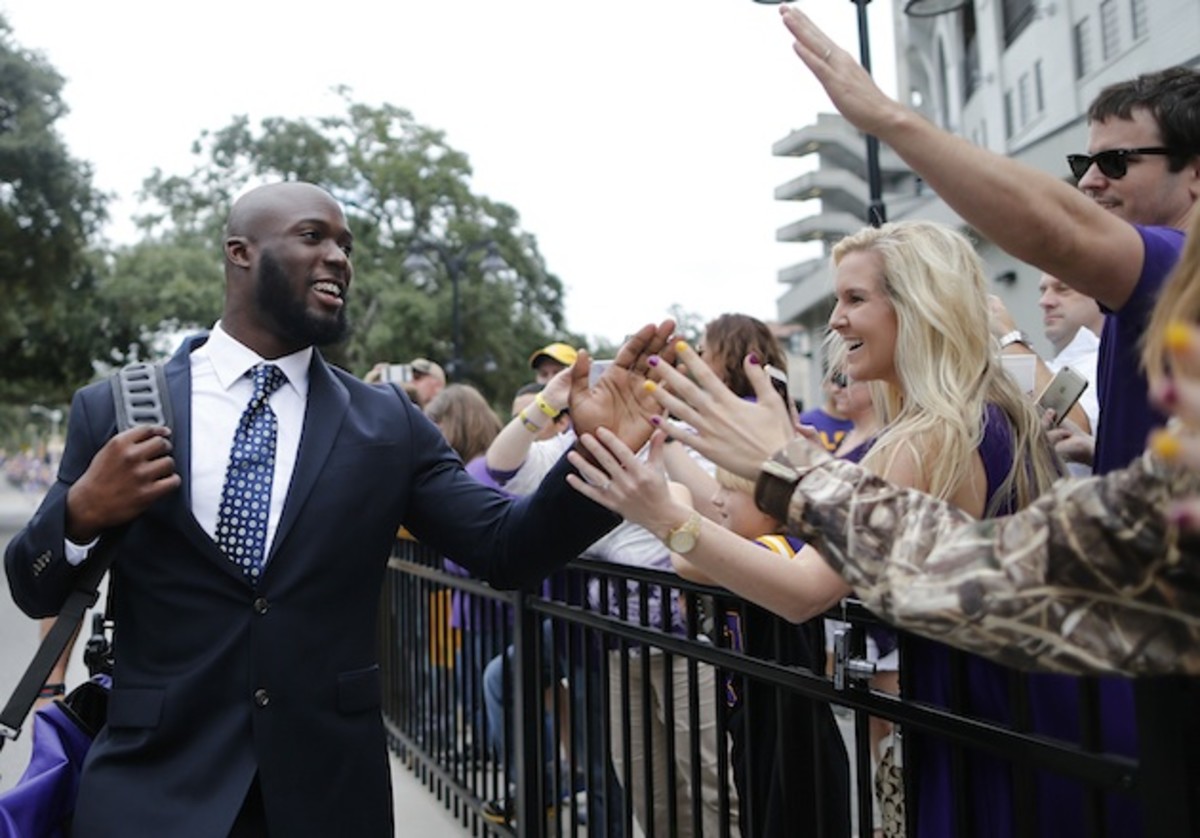
There is something particularly insidious about the sports-media complex somehow profiting on both ends of Fournette’s journey. We all know by now that even as his incredible performances fill stadiums, sell merchandise and draw viewers to the SEC’s billion-dollar TV packages, Fournette won't be compensated at his market value — why with his “compensation” capped at the university’s cost of attendance. As if that weren’t galling enough, consider that, from one Saturday to the next, networks and radio shows and digital outlets will then fill a significant chunk of air-time discussing what Fournette should or shouldn’t do to best preserve his value.
This is apparently the new college-football paradigm: Make enough money to build lavish facilities, fly planes across the country and pay coaches like kings, all on the backs of young athletes. Then turn around and make still more money asking how these prospects can best navigate the crooked system that’s been built.
What should Leonard Fournette do?
Forget what the answer is and whom it benefits—the question itself is toxic.
• MORE: Tigers rise to No. 4 in Power Rankings
Fournette has become one of the greatest college athletes in the country in a sport we continue to support and celebrate and open our wallets before despite the pangs of better judgment. If life in our imagined capitalist utopia really is all about supply and demand, market forces and the invisible hand, Fournette has more than held up his end of the bargain. And yet, somehow, we still seek to place the burden for change on his shoulders, when we’re the ones who should be answering the questions.
On Saturday, Georgia sophomore Nick Chubb, one of a number of contenders for “Best Running Back in College Football Not Named Leonard Fournette,” suffered a gruesome leg injury during the first quarter of the Bulldogs’ showdown with Tennessee. After hyperextending his left knee, sideline reporter Allie LaForce noted that Chubb actually collapsed, unconscious, while making his way from the team’s training table to the cart, before eventually coming to and submitting to evaluation. On Sunday, the University revealed that while Chubb did not sustain damage to his ACL, repairs to multiple other ligaments and cartilage will require surgery. While the team’s doctors indicated that a full recovery is expected, Chubb will miss the remainder of the 2015 season.
It’s therefore highly unlikely you’ll hear anyone ask whether Chubb should sit out his junior year. Given the seriousness of the injury — to say nothing of the importance of functioning knees to running backs— Chubb will likely have to spend next season proving to the NFL his recovery is complete, that he can return to the form that had him tabbed as a potential first-round pick. There will be no will-he-won’t-he for Chubb, only condolences, akin to the kind passed along by ESPN radio host and college football analyst Danny Kanell.
Just heart breaking seeing this happen to Nick Chubb. Prayers to him. Hope it's not as bad as it looked.
— Danny Kanell (@dannykanell) October 10, 2015
But it didn’t take long for Kanell — who, it must be noted, opposes further compensation for NCAA athletes — to draw the ire of his colleague, radio host and commentator Bomani Jones:
you still don’t want em to get paid, tho. cash would probably go farther than those well wishes. https://t.co/jd9SPFGTue
— bomani (@bomani_jones) October 10, 2015
An argument ensued, though calling it a “back-and-forth” might be generous, given that it quickly became clear Kanell wanted no part of Jones’ ire.
@dannykanell that wasn’t making my case. it was saying your sympathy comes off as hollow when it’s only generated by catastrophic injury.
— bomani (@bomani_jones) October 10, 2015
@bomani_jones why would I need to show sympathy for kid's getting a free education and exceptional college experience?? Oh and cash now too.
— Danny Kanell (@dannykanell) October 10, 2015
@dannykanell because we just saw some of the kid’s earning potential take a blow. while he played for free under the employ of millionaires.
— bomani (@bomani_jones) October 10, 2015
@bomani_jones see that's why I didn't want to get into this now. Nice shot tho. I'm done
— Danny Kanell (@dannykanell) October 10, 2015
@dannykanell how are you gonna say you didn’t wanna get in this when you came back quickly and confidently? you wanted to. now you don’t.
— bomani (@bomani_jones) October 10, 2015
@bomani_jones I'm open to debate but once it gets pointless I've got better things to do
— Danny Kanell (@dannykanell) October 10, 2015
@dannykanell is that a synonym for “once bomani starts serving me in front of all these people?"
— bomani (@bomani_jones) October 10, 2015
.@bomani_jones nope i thought it was way more polite than saying i have more of a life than to be able to tweet 298,000 times. On a Saturday
— Danny Kanell (@dannykanell) October 10, 2015
“Once it gets pointless, I’ve got better things to do.”
And that, at the core, is what’s still so wrong with the discourse. Because while we always make plenty of time to ask what the players should be doing to protect themselves, it’s somehow never the right moment to discuss whether the system itself needs overhauling. It’s always “too soon” — particularly after heartbreaking injury — to discuss such callous things as money. Maybe you think it’s “pointless” to have these conversations. Which can happen when you’re forced to realize your arguments about amateurism — the value of an education, the corruptive power of a paycheck — fail to stand up to even the slightest bit of scrutiny. Maybe Kanell actually was headed out to fly a kite. But the argument never gets grappled with sufficiently because it’s ugly, and it’s messy, and it threatens the very foundations of a system from which so very many—present company included—have benefited.
*****
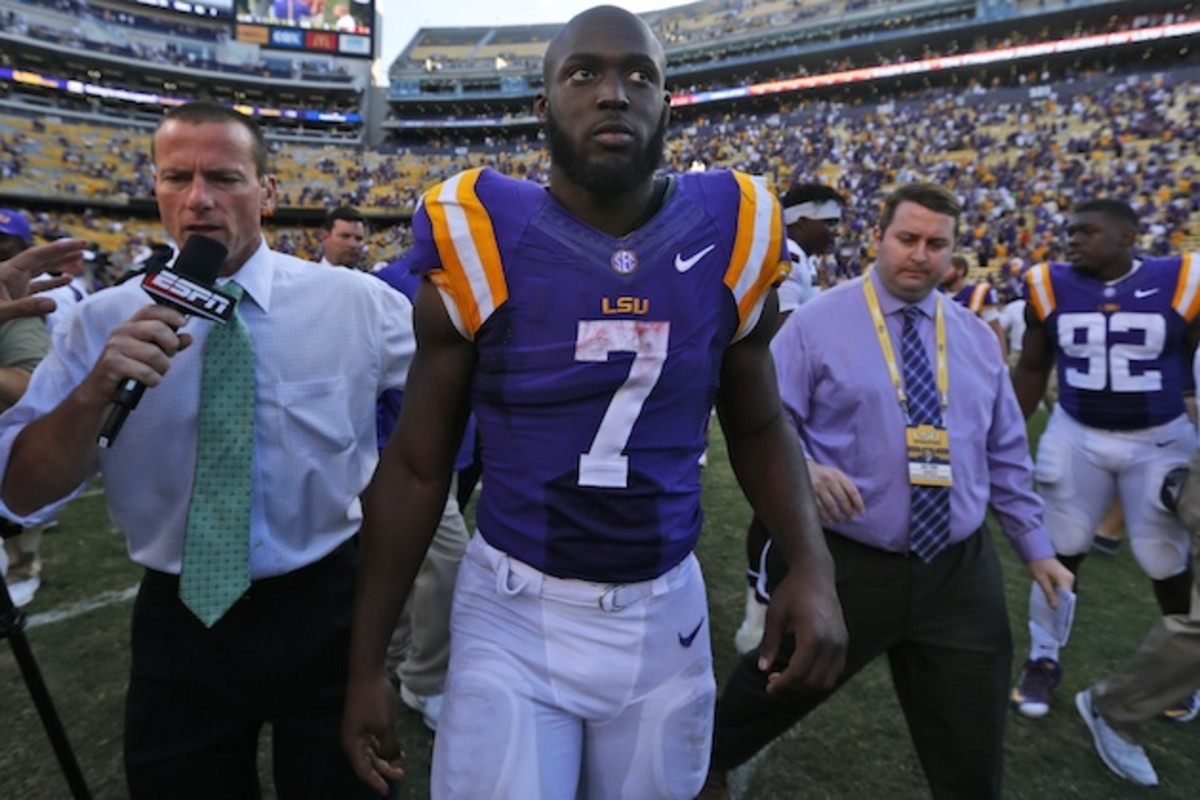
Therein lies the problem: We’re forced to approach the NCAA’s cartel system (their words, not mine) as an unfortunate, entrenched reality, one we all must make the best of. Because actually fixing things; redrawing athletic department budgets; figuring out an equitable way to pay athletes of various ability levels and stardom; extricating big-time college sports from its farm-system underpinnings—all of it’s messy and mind-cripplingly challenging. It’s much easier, instead, to stare up at the sheer magnitude of the system, to contemplate how difficult it would be to tear it all down and start anew and decide against doing so.
Heisman Watch: Contenders making up ground on LSU's Leonard Fournette
But to steal once more from Jones: If we view compensating human beings for their labor as a moral imperative, if we begin there, and decide that notion is worth whatever upheaval it requires, then perhaps we might begin to place the burden on those who facilitate this machine, rather than those simply ground up in its gears. There are those, after all, brave enough ask how any of us can, in good conscience, continue to watch, to cheer, to spend our Saturdays worshipping at the altar of school pride, regional rivalries or script Ohio. Say what you will about the plethora of ethical dilemmas confronting NFL fans — from the CTE crisis, to player discipline to an often troubling attitude towards women — but at least one can tune in on Sunday knowing that our modern-day gladiators will emerge with something for their efforts.
And yet, why should we the fans feel it necessary to apologize? Isn’t the reality that we’re playing our part just fine? Fournette’s job is to run like hell, and ours is to keep our cable bill paid so we might marvel at him. The breakdown lies in the middle, where the reward we offer isn’t making its way into the hands of those who earn it. It’s shameful, it’s outrageous and it’s past time for it to be fixed.
SI's Best Shots of Leonard Fournette
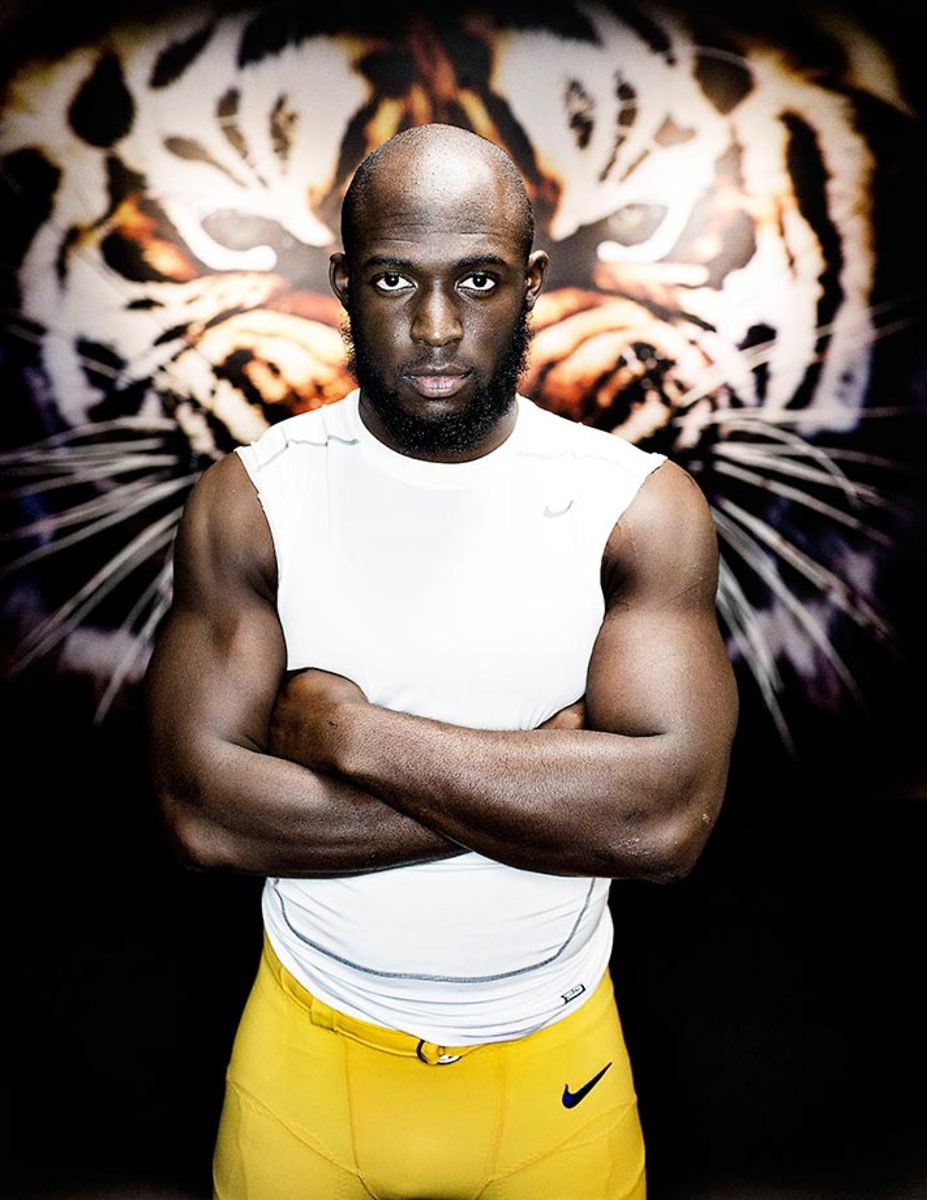
Here are SI's best photos of LSU running back Leonard Fournette, who through five games of the 2015 season had run for 1,022 yards on 119 rushes—an 8.6 yards-per-carry average, to go with 12 touchdowns.
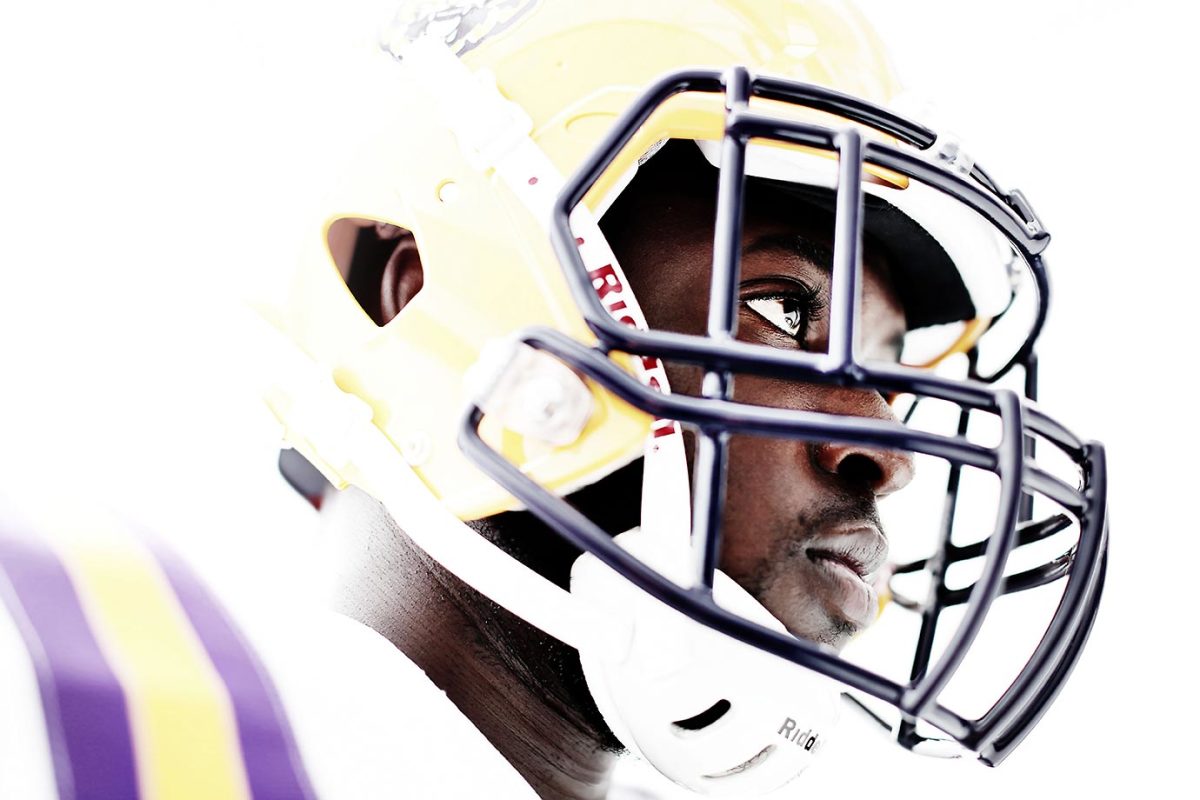
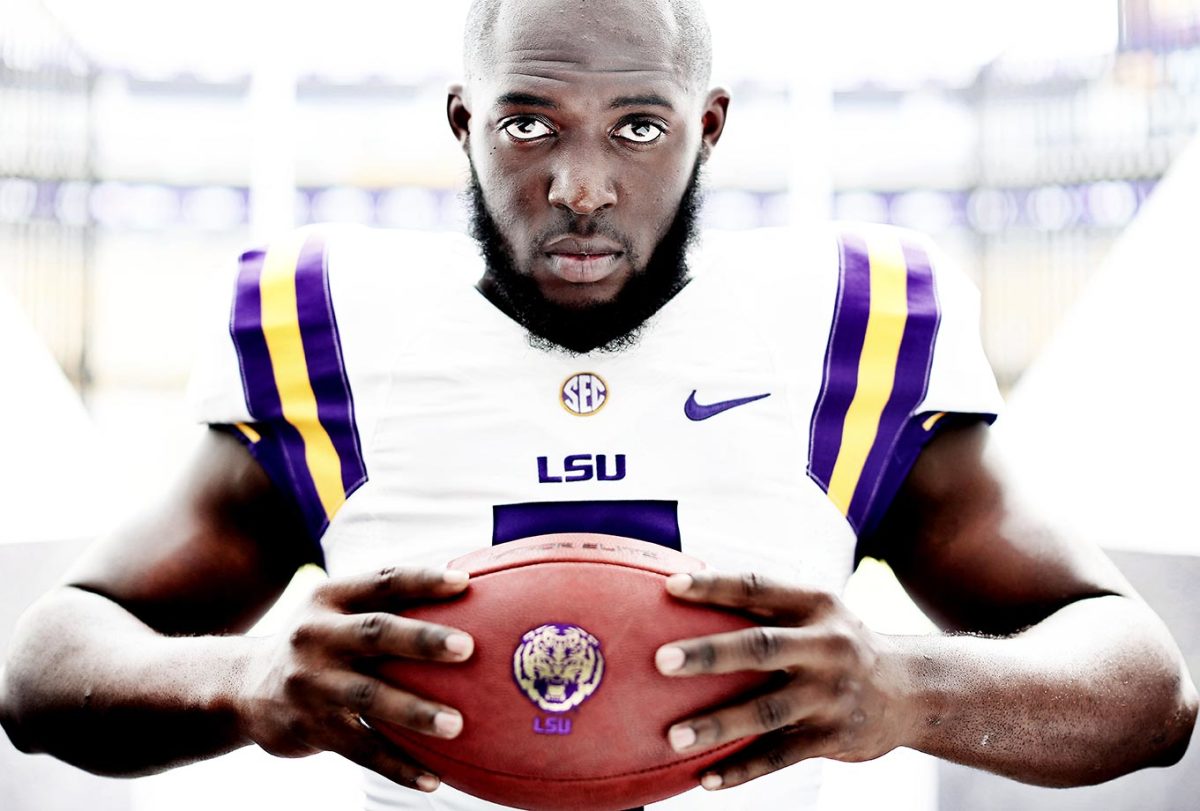
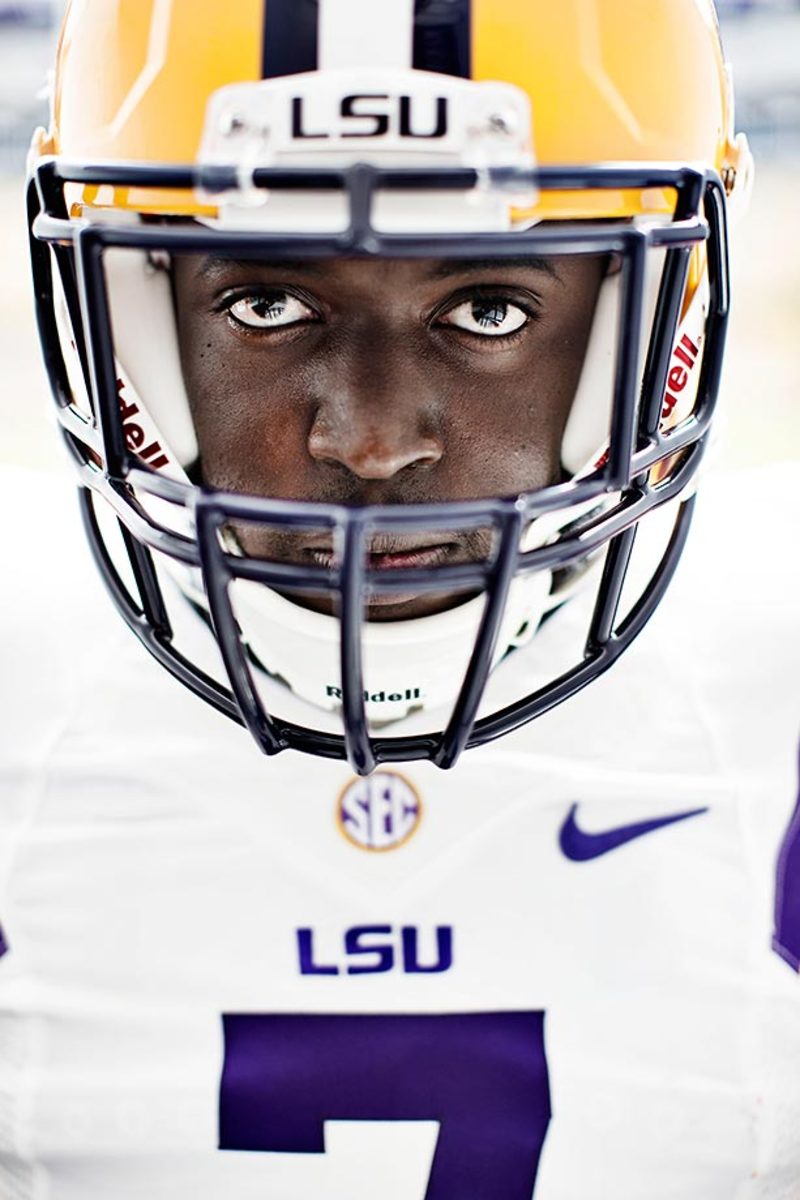
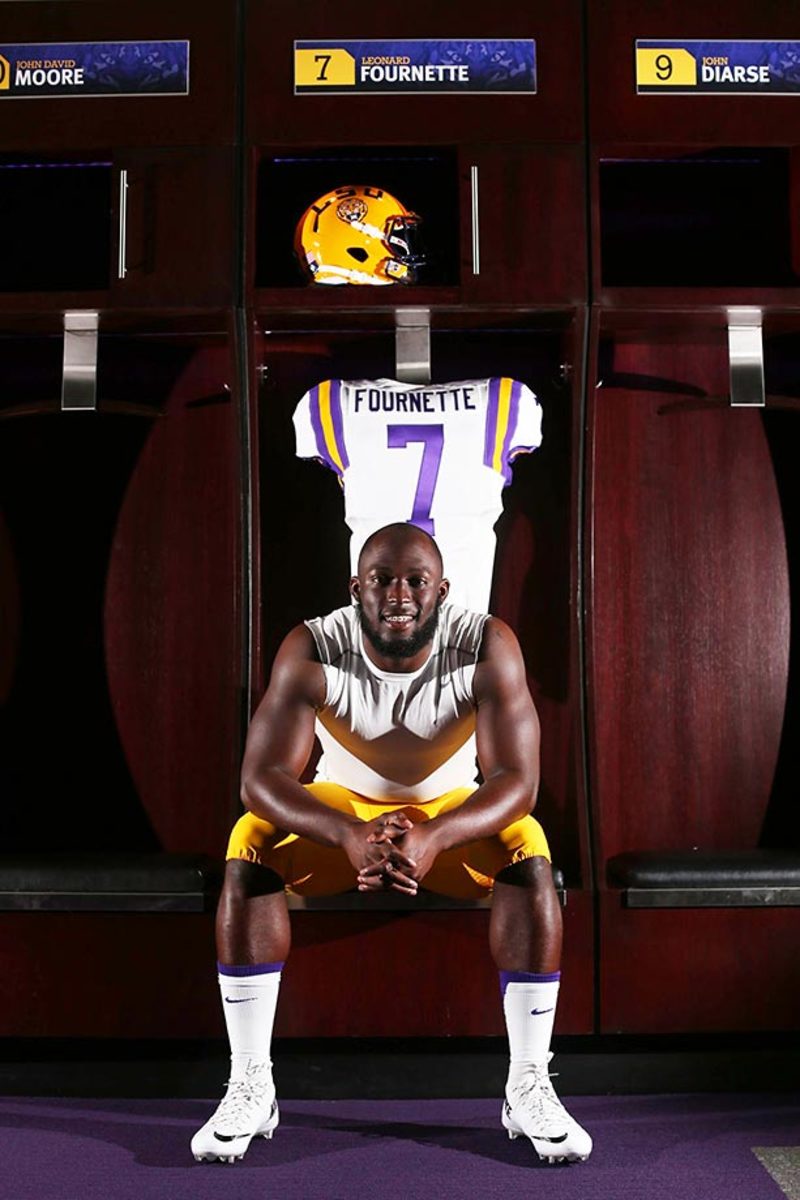
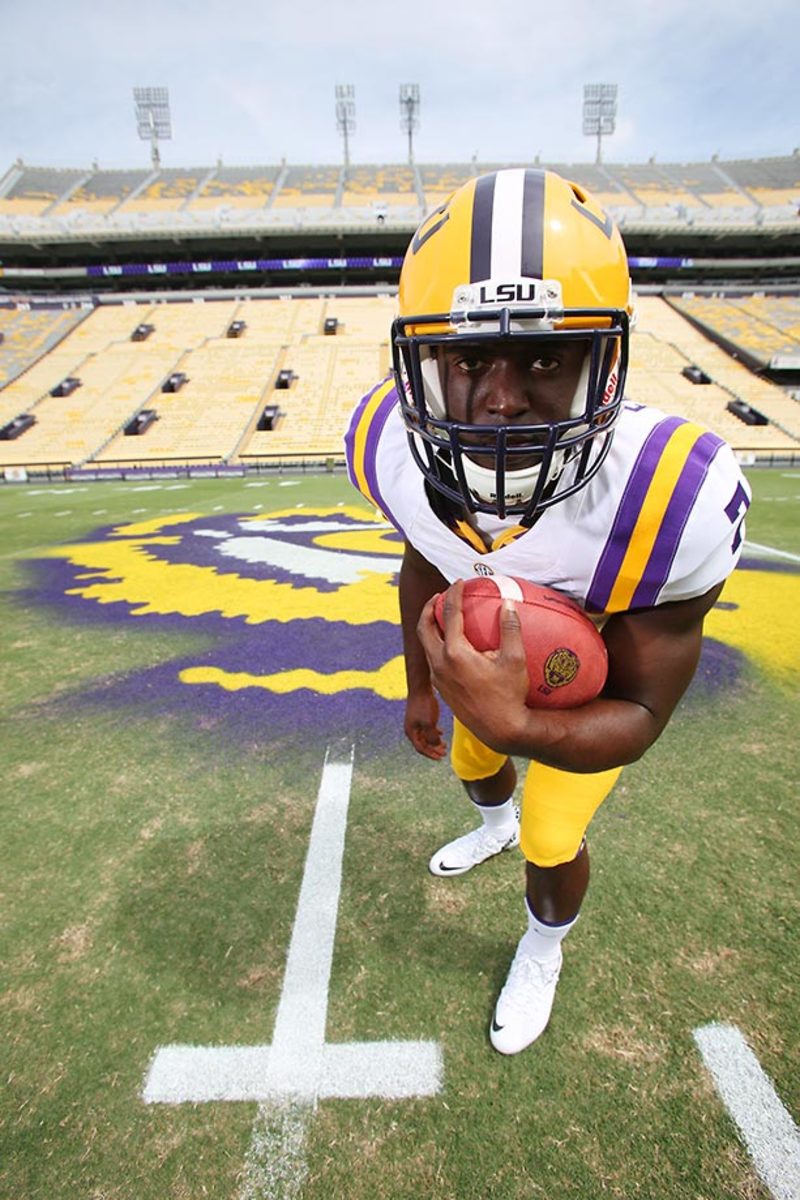
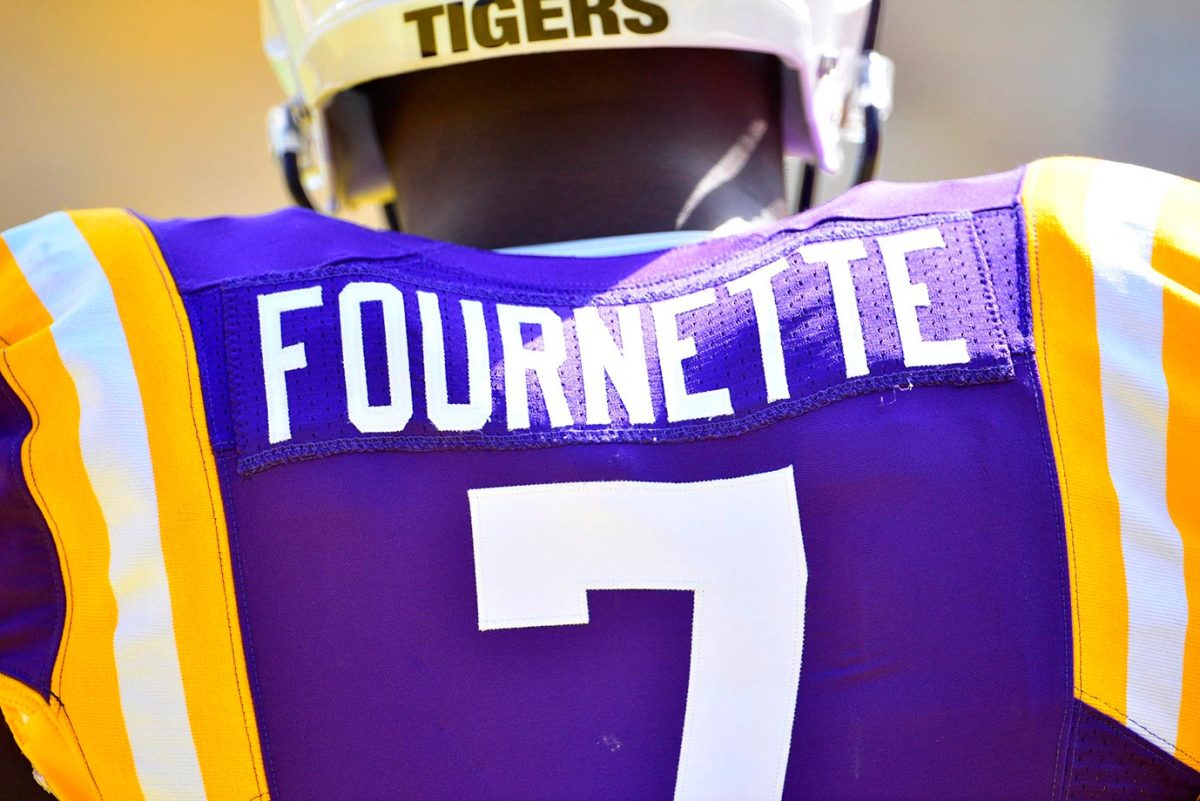
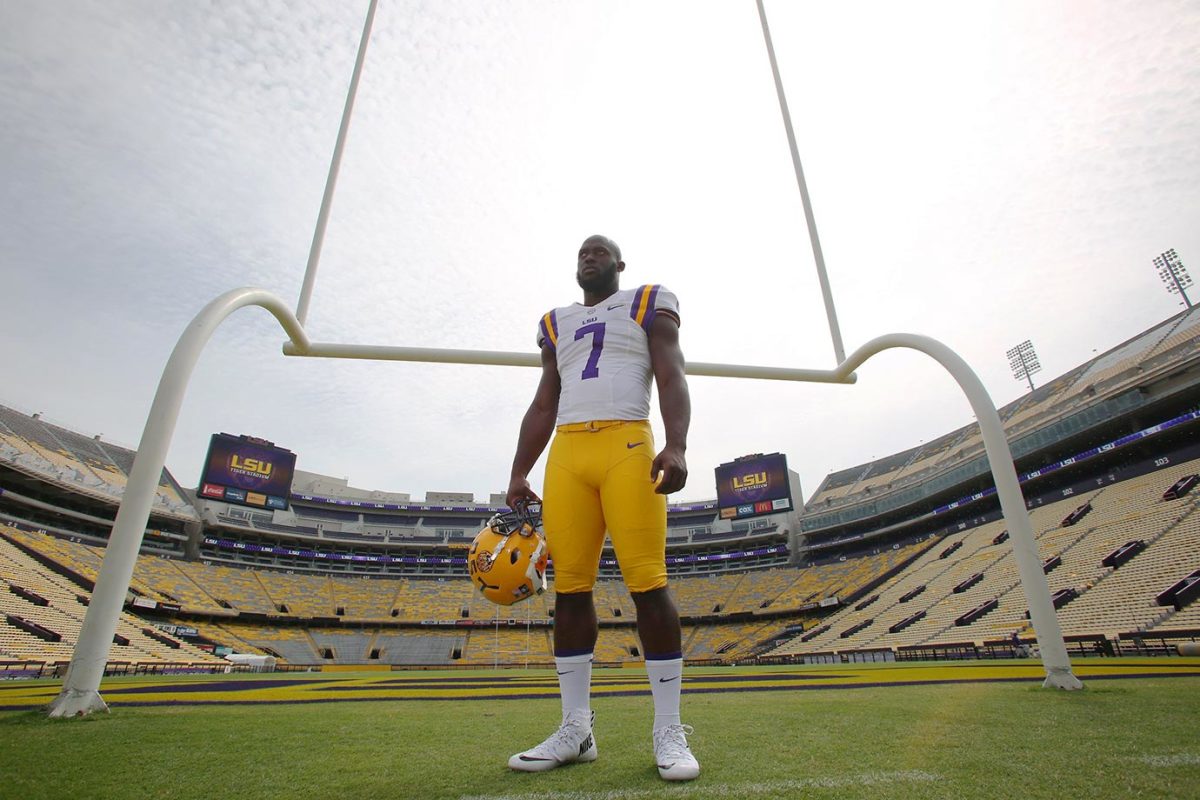
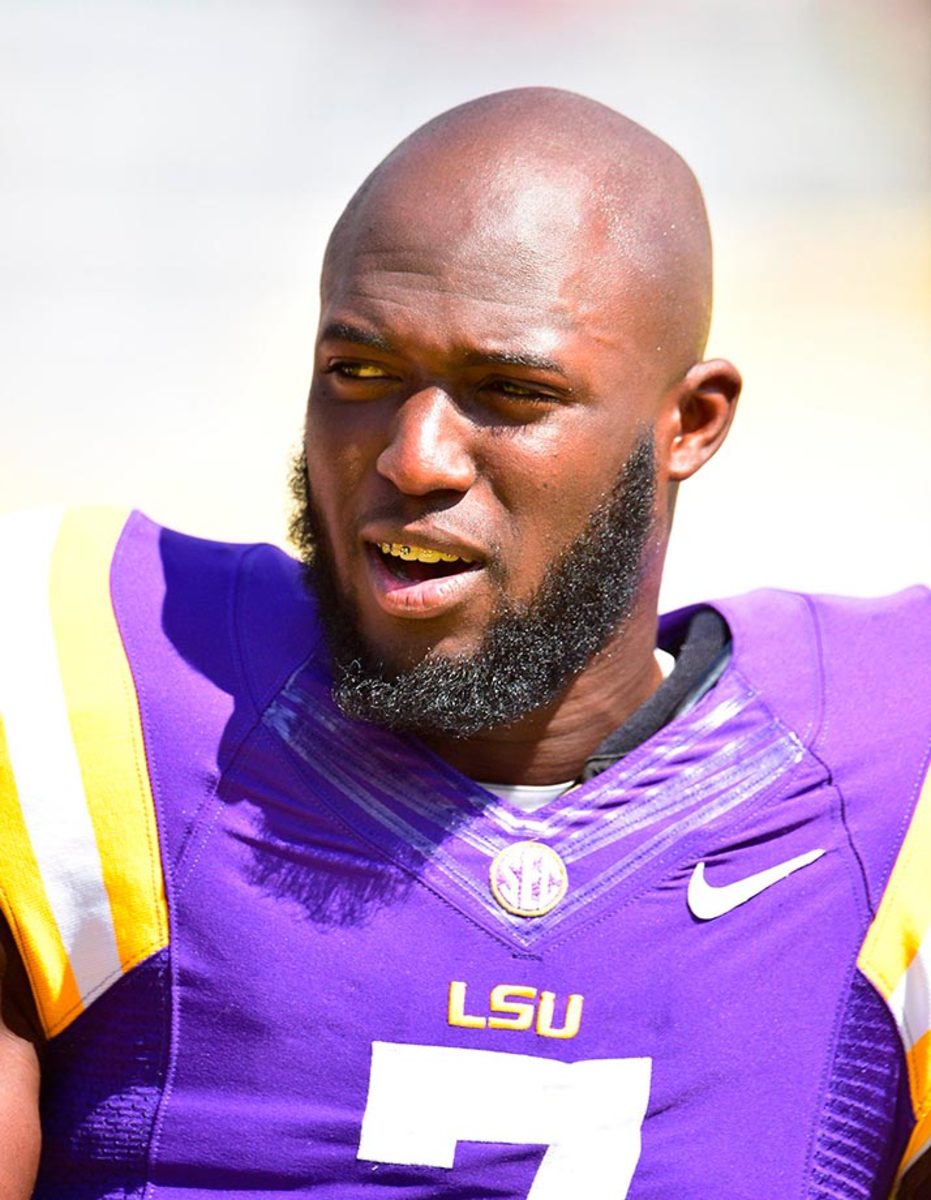
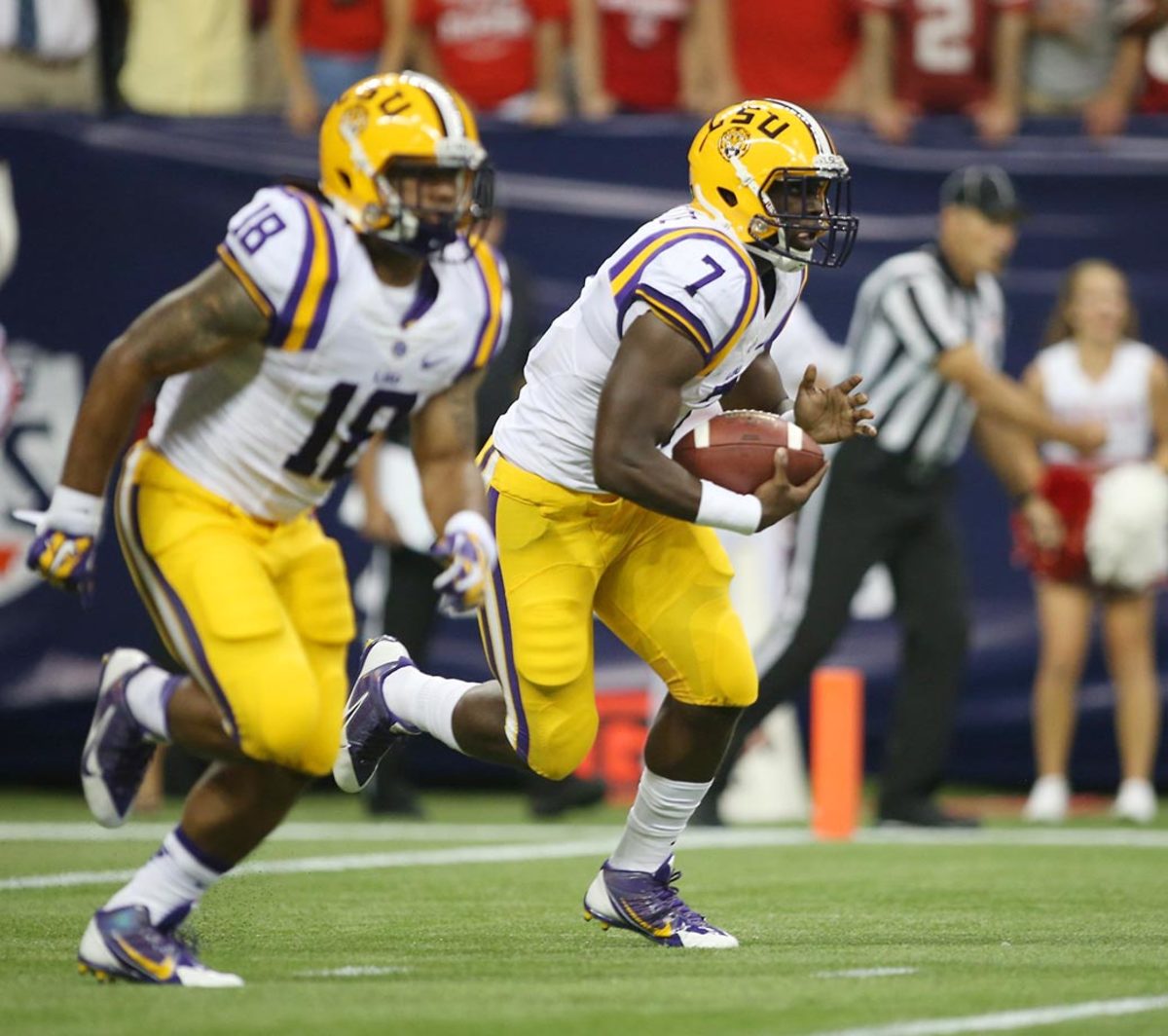
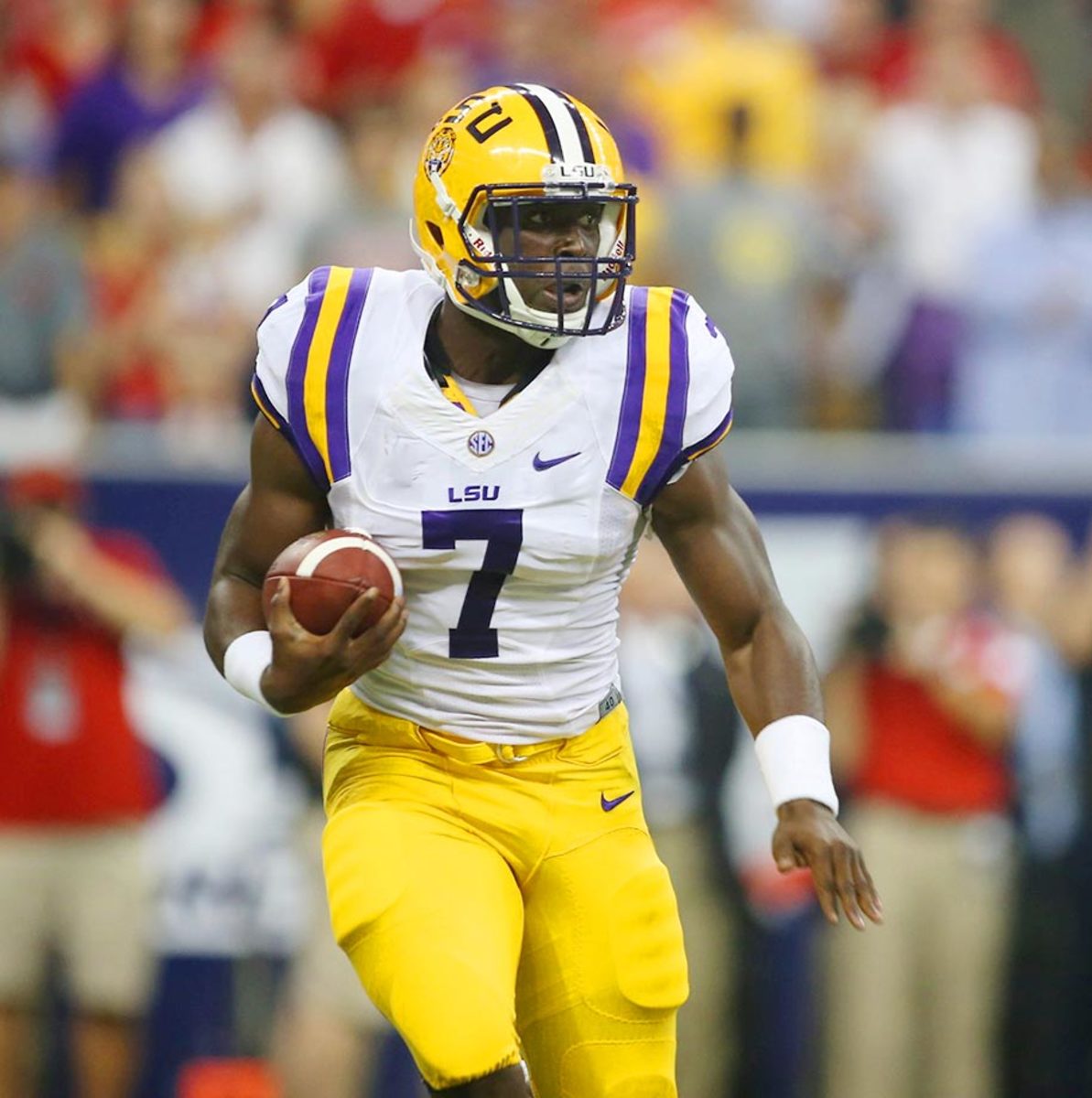
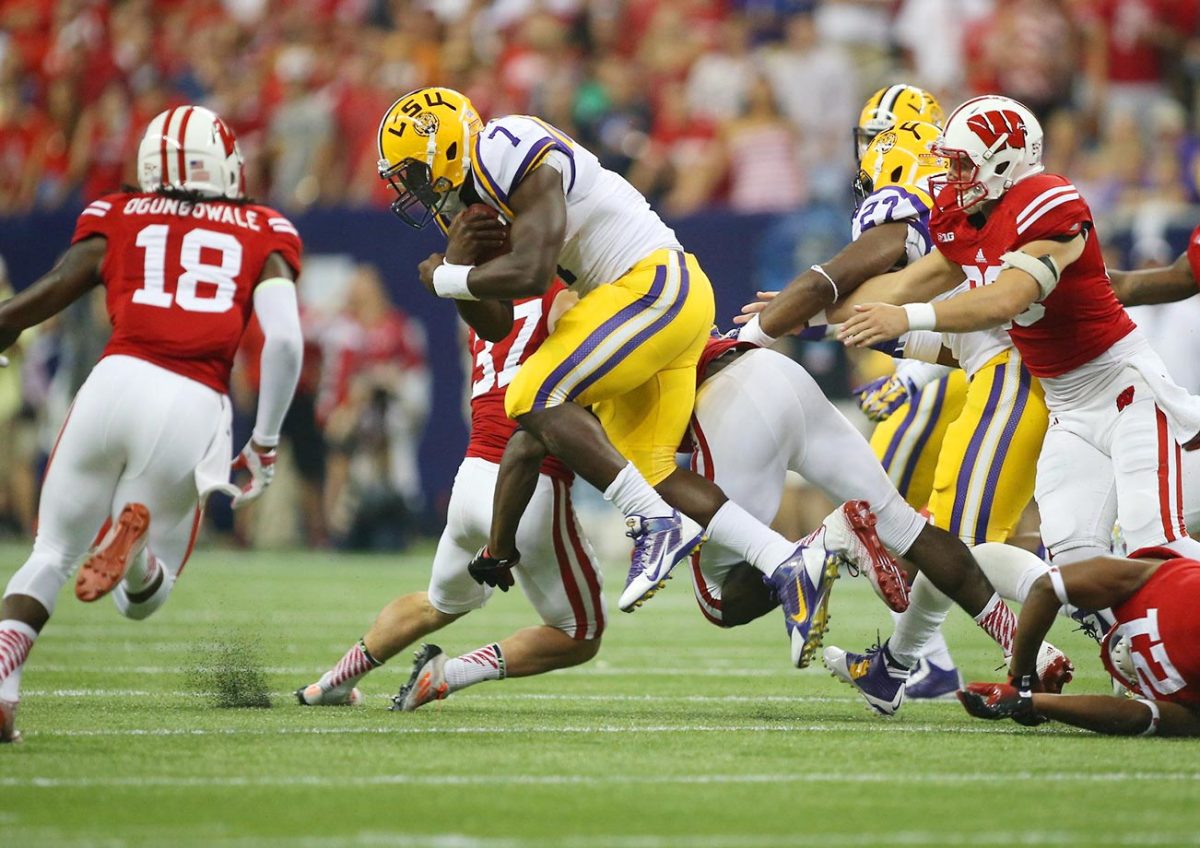
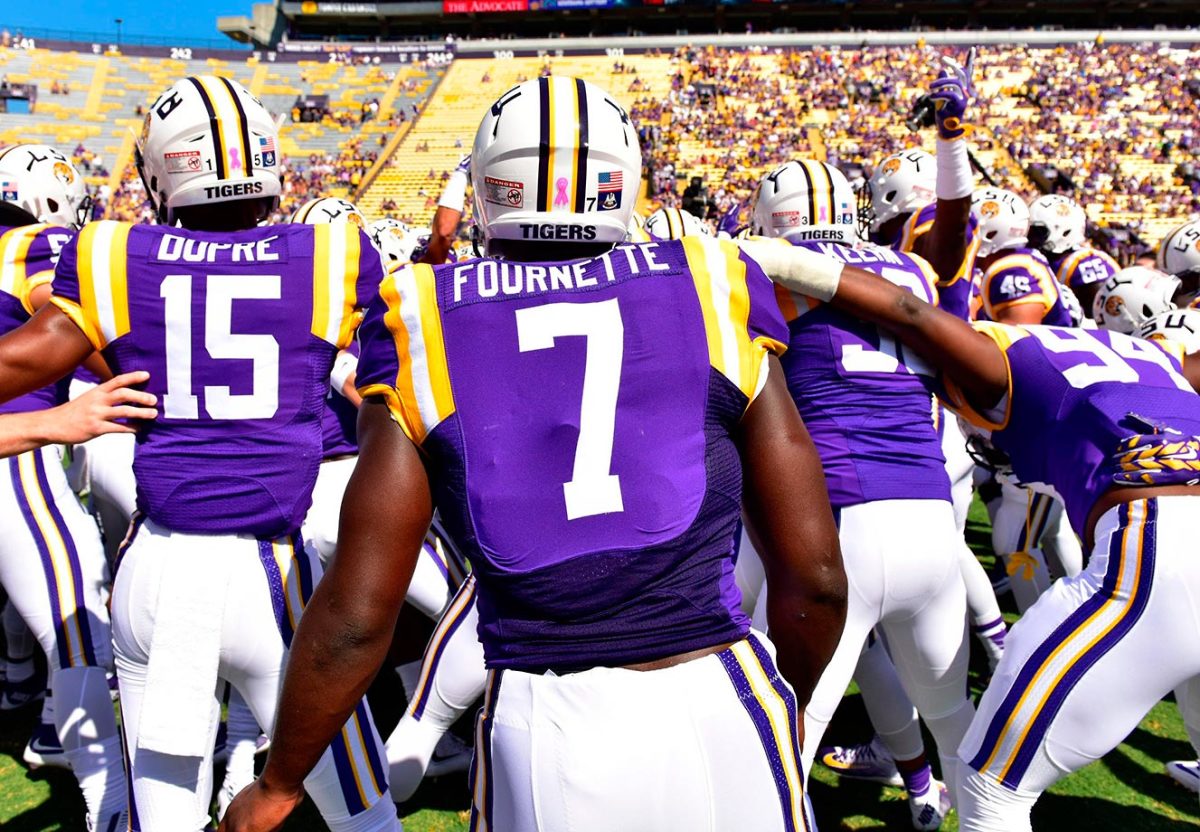
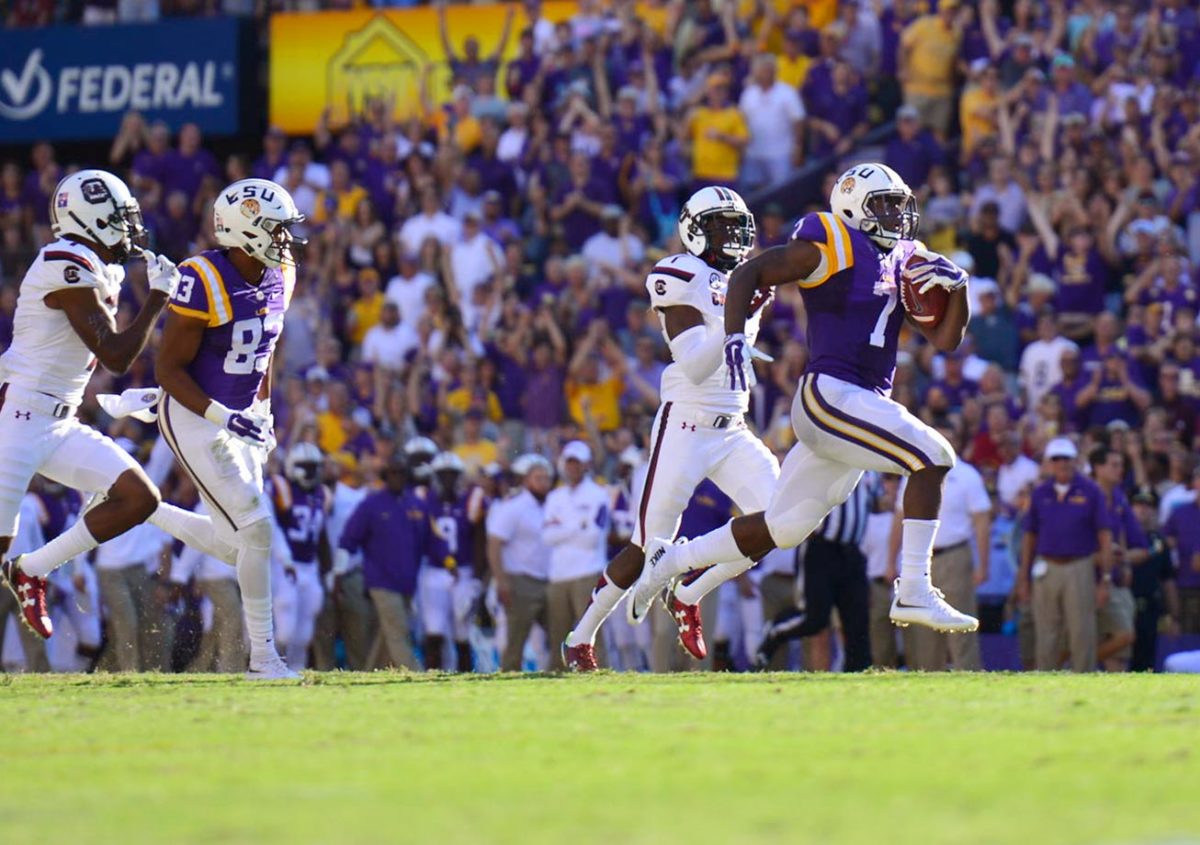
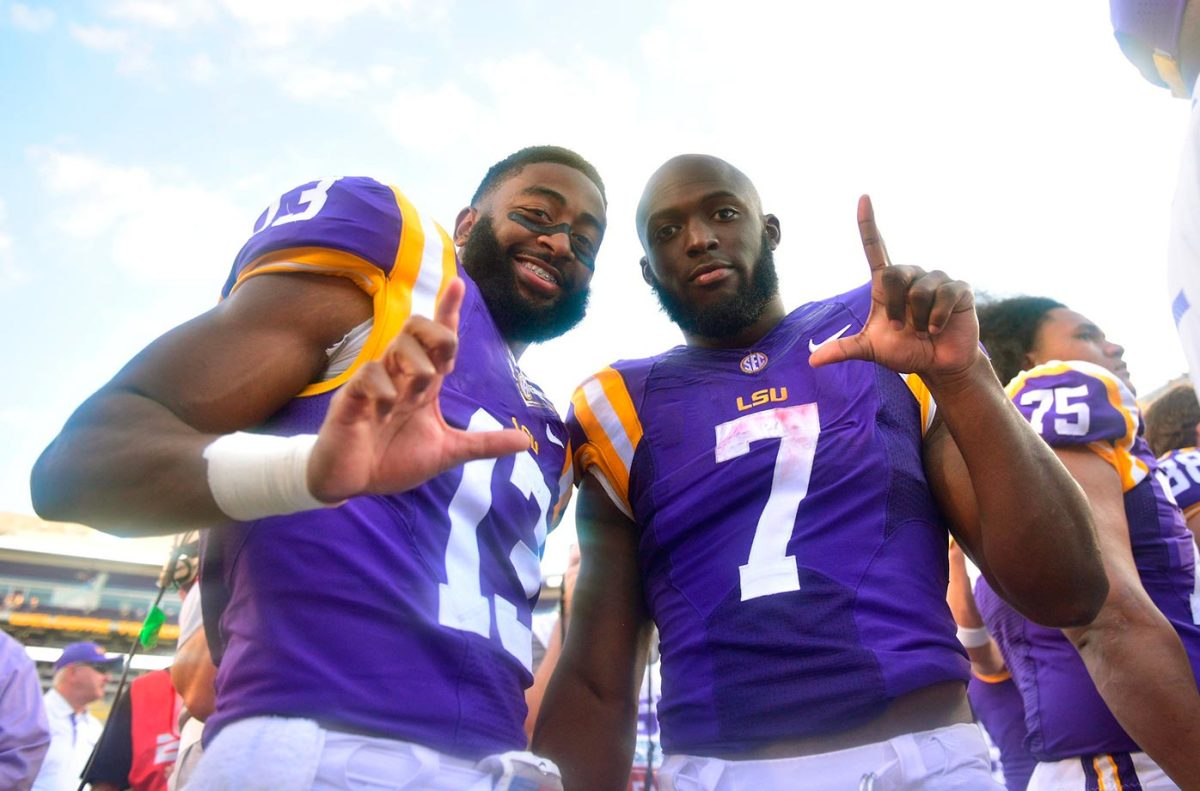
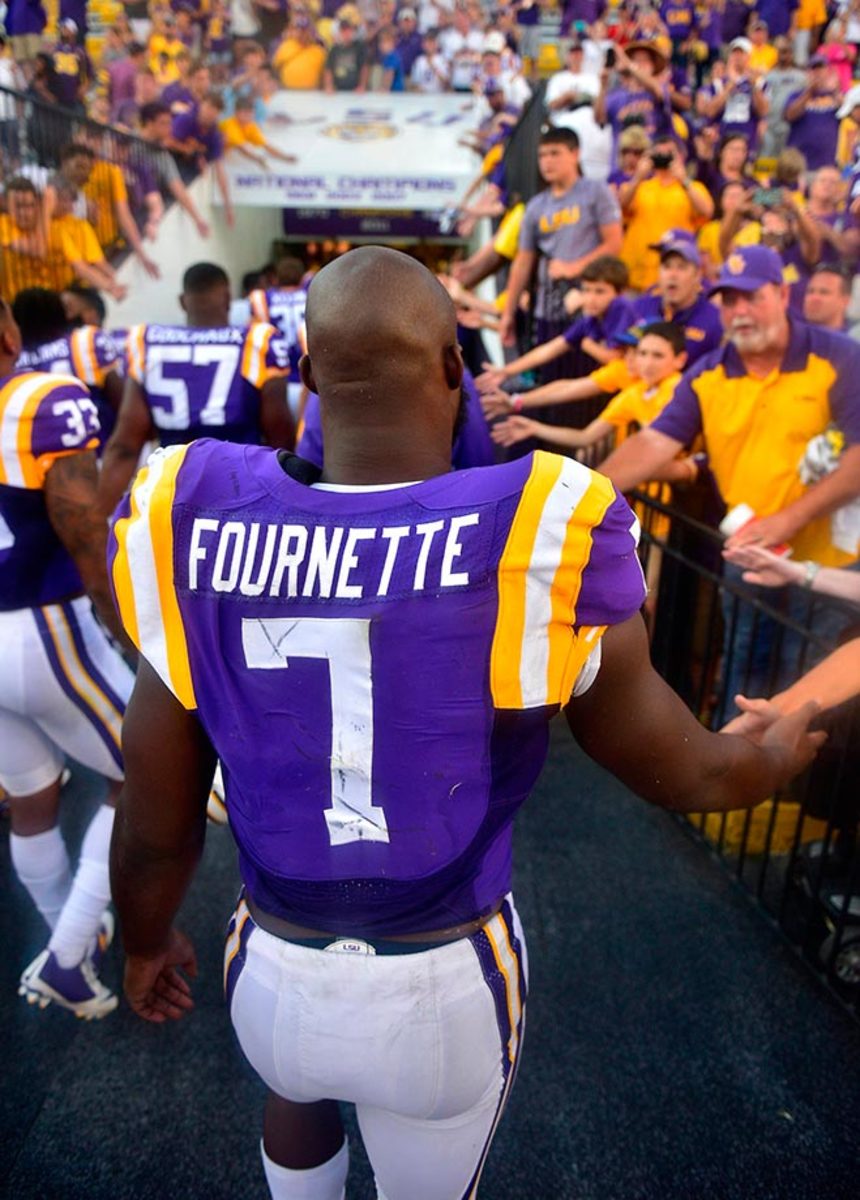
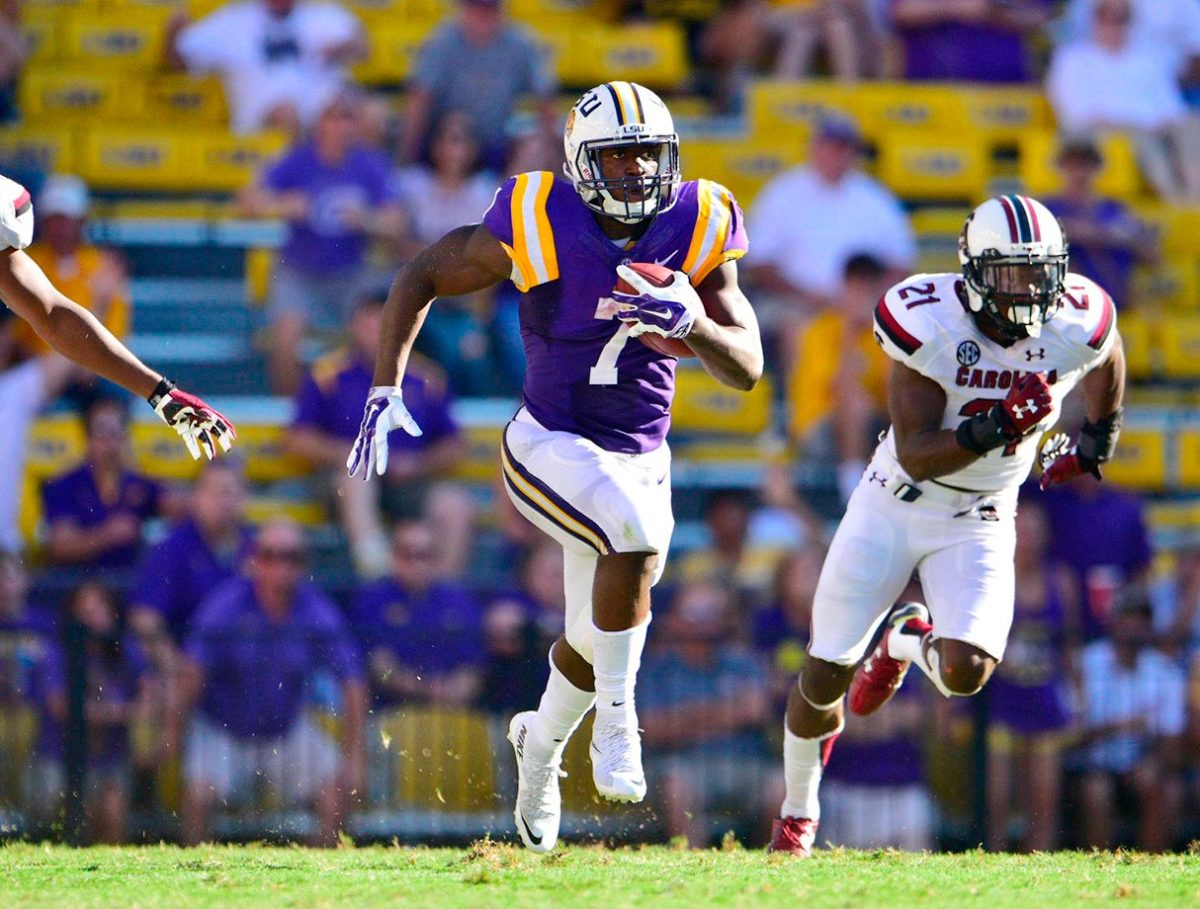
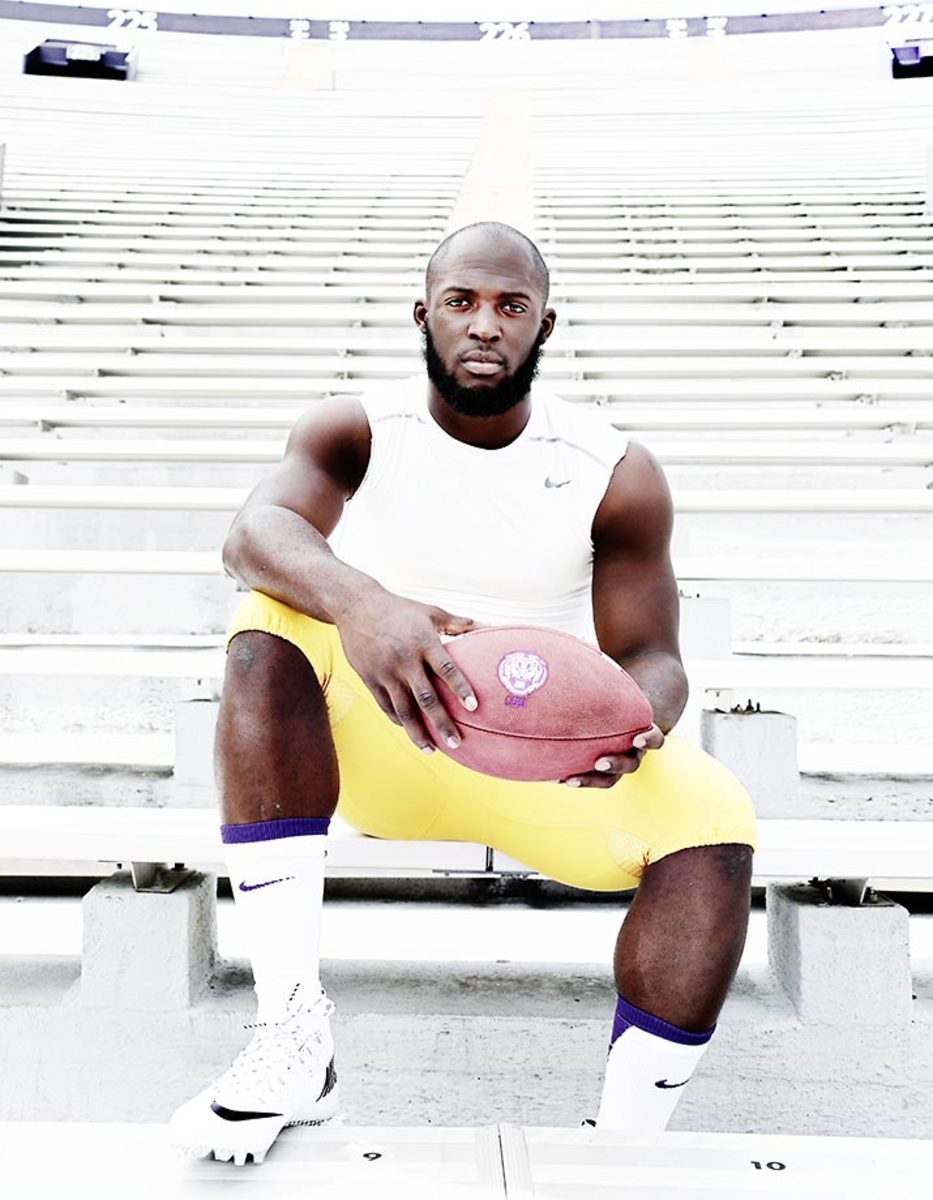
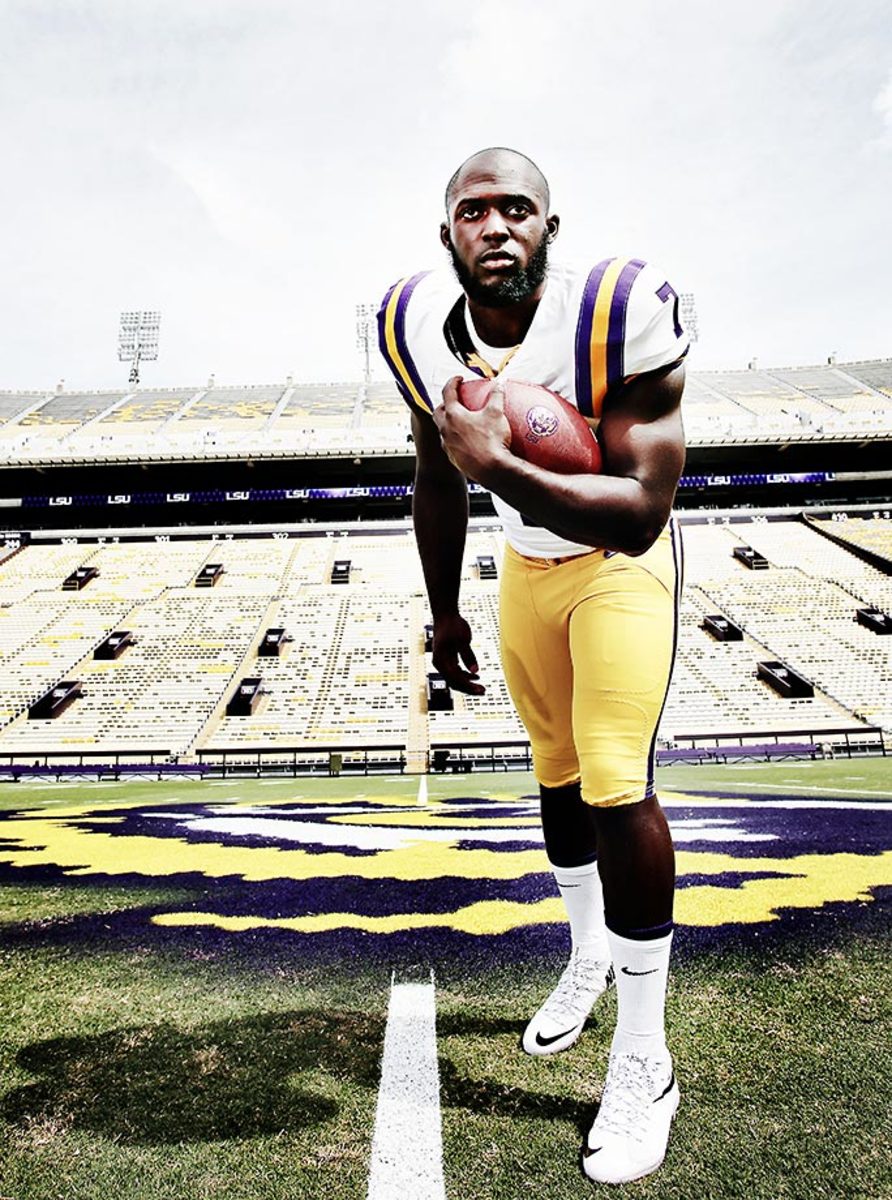
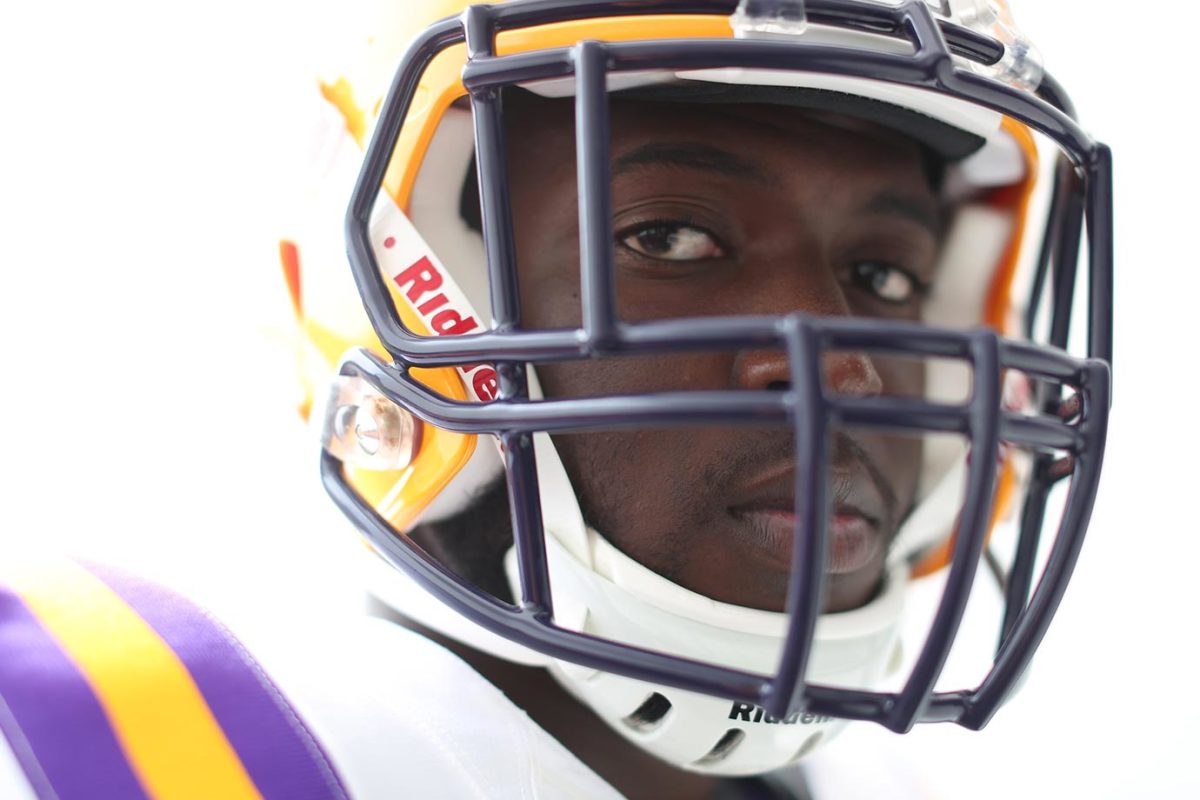
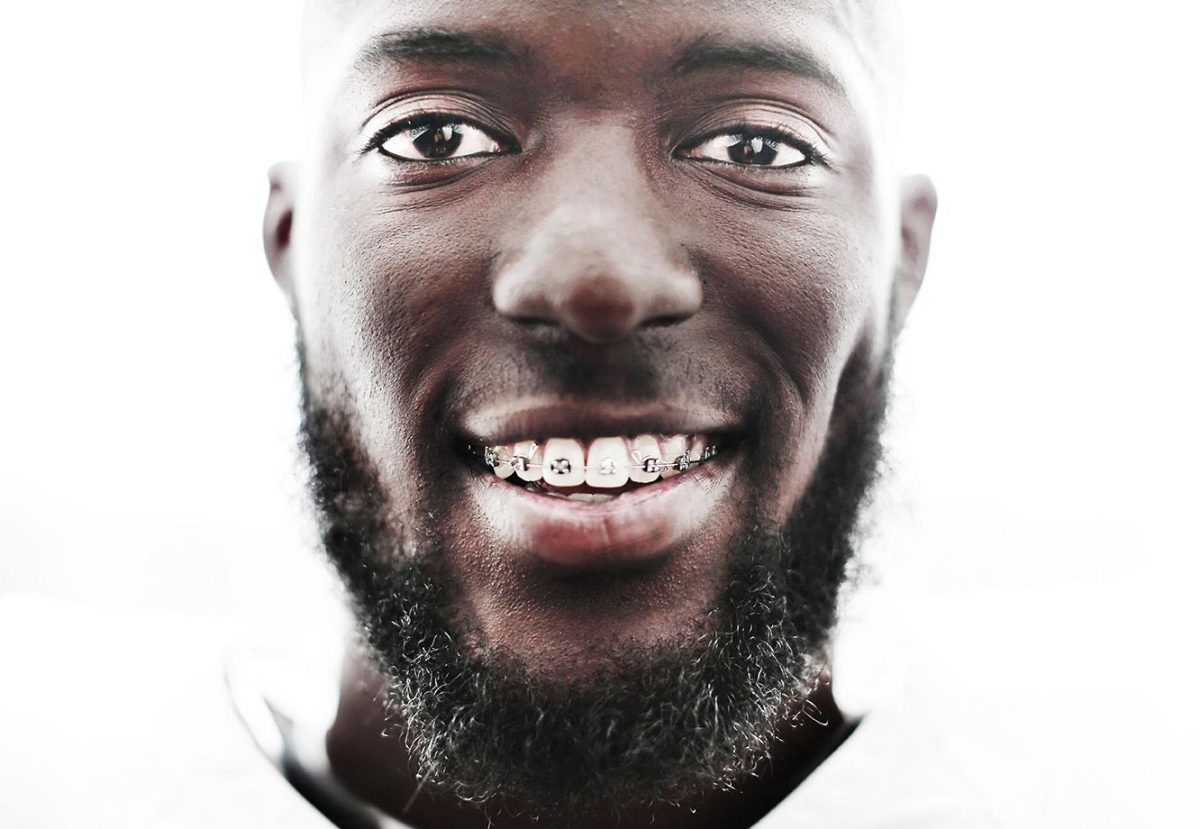
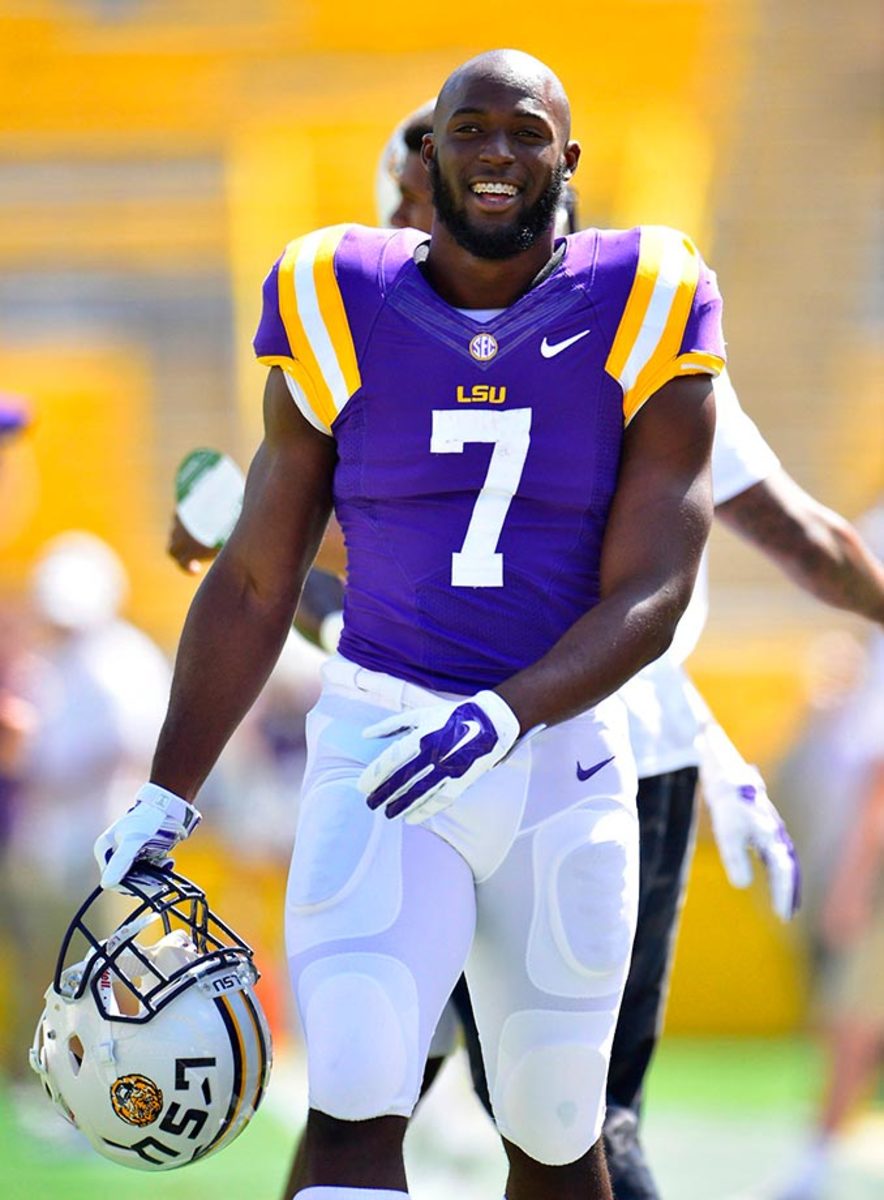
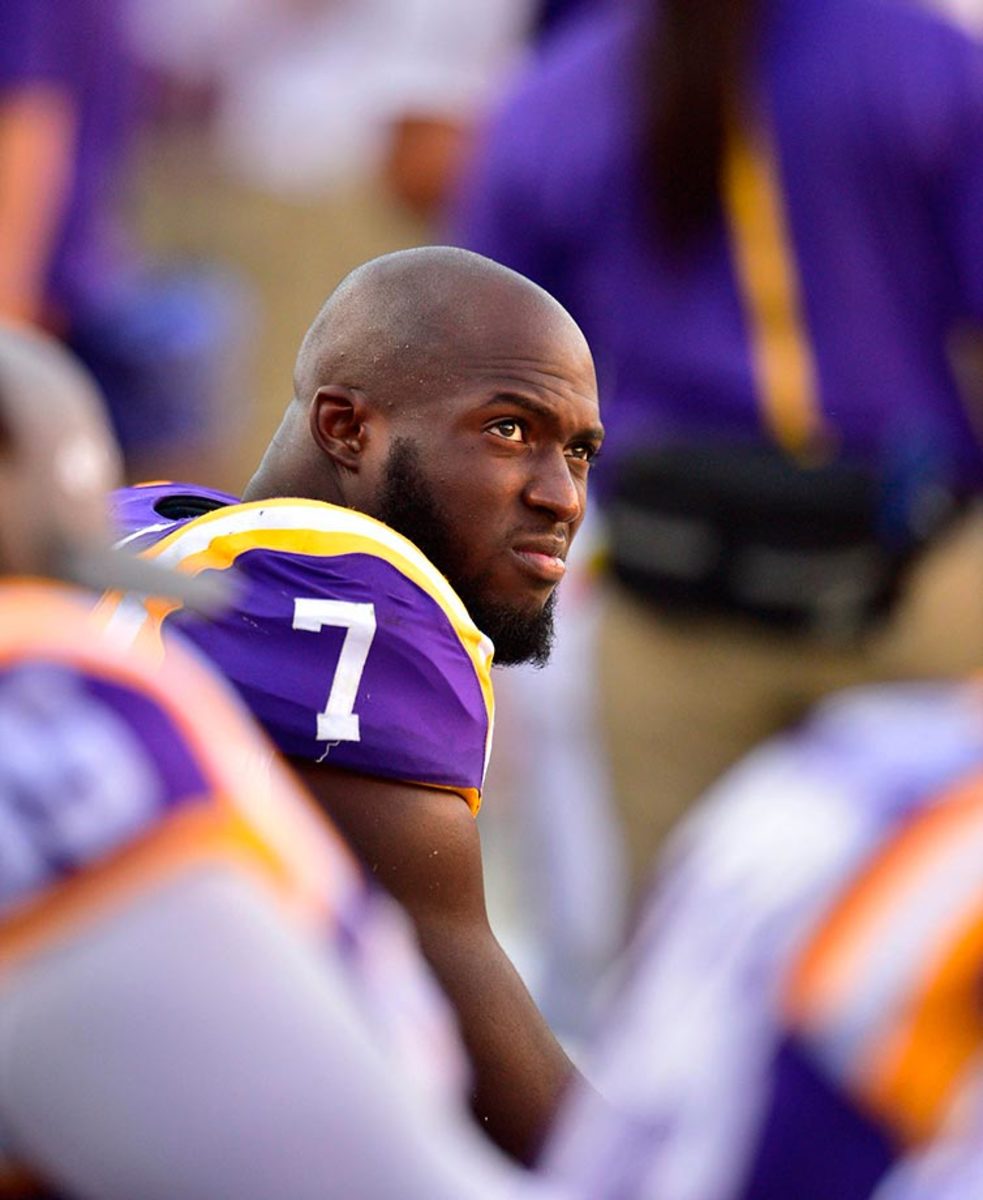
*****
What should Leonard Fournette do?
He’ll make his own decisions of course, and by his own notions of risk and reason. I’d love nothing more than to Fournette grab the mic himself, and lay it all bare.
I’m going to take the field, and continue to make grown men look silly, because I’m among the best in the world at what I do. I’m going to command everyone’s attention, get the world talking, and maybe even land a magazine cover or two. I’m going to study and practice and compete. And I’m going to expect that some day soon, I’m going to earn a living, that all of you are going to wake up and have the decency to give me and my colleagues what we’ve rightfully earned, what we’ve been denied for far too long.
We’ve spent far too much time — this season, last season, and far too many years before— asking the wrong question. Fournette is going to play football.
What the hell are we going to do?
